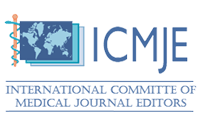Влияние пробиотического штамма Bacillus subtilis на желудочно-кишечный тракт телят с диарейным синдромом
Аннотация
Развитие диарейного синдрома у телят является серьезной проблемой и приносит большие экономические потери для животноводства. Причины бывают инфекционного и не инфекционного характера. В основе профилактики таких состояний лежит корректное подселение симбиотической микрофлоры желудочно-кишечного тракта у телят в неонатальный период. Еще одним важным фактором является применение пробиотических бактерий с целью регуляции метаболизма и микробиома. В данном исследовании мы оценивали скорость элиминации бактерий рода Bacillus subtilis из организма телят молочного скота, а также влияние пробиотиков на диарею и изменение микробиома. С этой целью у животных оценивали изменение консистенции и бактериальное разнообразие фекалий до и после применения пробиотического штамма бактерий Bacillus subtilis. По результатам исследований мы наблюдали восстановление функции желудочно-кишечного тракта у телят с признаками диареи. В ходе исследования наблюдалось изменение микробного сообщества под влиянием бактерий Bacillus subtilis. Мы увидели, что до применения пробиотика в посевах на питательных средах у телят опытной и контрольной групп детектировались грибы рода Candida tropicalis, однако после применения препарата у телят опытной группы, этих грибов не обнаруживалось уже на 1 сутки после отмены препарата. Также, после применения пробиотика в фекалиях телят опытной группы перестали детектироваться бактерии группы KESC (Klebsiella spp., Enterobacter spp., Serratia spp., Citrobacter spp.). Пробиотические бактерии Bacillus subtilis принимают участие в восстановлении функции желудочно-кишечного тракта у телят с диареей и влияют на микробное сообщество.
EDN: QLGMUF
Скачивания
Литература
Barnes, A. G. C., Cerović, V., Hobson, P. S., & Klavinskis, L. S. (2007). Bacillus subtilis spores: A novel microparticle adjuvant which can instruct a balanced Th1 and Th2 immune response to specific antigen. European Journal of Immunology, 37(6), 1538–1547. https://doi.org/10.1002/eji.200636875
Bastos, T. S., de Lima, D. C., Souza, C. M. M., Maiorka, A., de Oliveira, S. G., Bittencourt, L. C., & Félix, A. P. (2020). Bacillus subtilis and Bacillus licheniformis reduce faecal protein catabolites concentration and odour in dogs. BMC Veterinary Research, 16(1), 1–8. https://doi.org/10.1186/s12917-020-02321-7
Bernardeau, M., Lehtinen, M. J., Forssten, S. D., & Nurminen, P. (2017). Importance of the gastrointestinal life cycle of Bacillus for probiotic functionality. Journal of Food Science and Technology, 54(8), 2570–2584. https://doi.org/10.1007/s13197-017-2688-3
Caffarena, R. D., Casaux, M. L., Schild, C. O., Fraga, M., Castells, M., Colina, R., Maya, L., Corbellini, L. G., Riet-Correa, F., & Giannitti, F. (2021). Causes of neonatal calf diarrhea and mortality in pasture-based dairy herds in Uruguay: A farm-matched case-control study. Brazilian Journal of Microbiology, 52(2). https://doi.org/10.1007/s42770-021-00440-3
Caulier, S., Nannan, C., Gillis, A., Licciardi, F., Bragard, C., & Mahillon, J. (2019). Overview of the antimicrobial compounds produced by members of the Bacillus subtilis group. Frontiers in Microbiology, 10. https://doi.org/10.3389/fmicb.2019.00302/bibtex
Cho, Y.-I., & Yoon, K. J. (2014). An overview of calf diarrhea — infectious etiology, diagnosis, and intervention. Journal of Veterinary Science, 15(1), 1–17. https://doi.org/10.4142/jvs.2014.15.1.1
Duan, M., Zhang, Y., Zhou, B., Qin, Z., Wu, J., Wang, Q., & Yin, Y. (2020). Effects of Bacillus subtilis on carbon components and microbial functional metabolism during cow manure-straw composting. Bioresource Technology, 303, 122868. https://doi.org/10.1016/j.biortech.2020.122868
Du, W., Wang, X., Hu, M., Hou, J., Du, Y., Si, W., Yang, L., Xu, L., & Xu, Q. (2023). Modulating gastrointestinal microbiota to alleviate diarrhea in calves. Frontiers in Microbiology, 14. https://doi.org/10.3389/fmicb.2023.1181545
Fukuda, T., Otsuka, M., Nishi, K., Nishi, Y., Tsukano, K., Noda, J., Higuchi, H., & Suzuki, K. (2019). Evaluation of probiotic therapy for calf diarrhea with serum diamine oxidase activity as an indicator. Japanese Journal of Veterinary Research, 67(4). https://doi.org/10.14943/jjvr.67.4.305
Guo, M., Wu, F., Hao, G., Qi, Q., Li, R., Li, N., Wei, L., & Chai, T. (2017). Bacillus subtilis improves immunity and disease resistance in rabbits. Frontiers in Immunology, 8(MAR), 354. https://doi.org/10.3389/fimmu.2017.00354/bibtex
Hashem, A., Tabassum, B., & Fathi Abd_Allah, E. (2019). Bacillus subtilis: A plant-growth promoting rhizobacterium that also impacts biotic stress. Saudi Journal of Biological Sciences, 26(6), 1291. https://doi.org/10.1016/j.sjbs.2019.05.004
Kahraman, O., Gürbüz, E., İnal, F., Arık, H. D., Altaş, M. S., & Ahmed, I. (2023). Effects of Bacillus subtilis C-3102 addition to dry dog food on nutrient digestibility fecal characteristics, fecal microbiota and blood chemistry in healthy dogs. Research Square. https://doi.org/10.21203/rs.3.rs-2450446/v1
Kertz, A. F., & Chester-Jones, H. (2004). Invited review: guidelines for measuring and reporting calf and heifer experimental data. Journal of Dairy Science, 87(11), 3577–3580. https://doi.org/10.3168/jds.S0022-0302(04)73495-5
Kim, K., He, Y., Xiong, X., Ehrlich, A., Li, X., Raybould, H., Atwill, E. R., Maga, E. A., Jørgensen, J., & Liu, Y. (2019). Dietary supplementation of Bacillus subtilis influenced intestinal health of weaned pigs experimentally infected with a pathogenic Escherichia coli. Journal of Animal Science and Biotechnology, 10(1), 1–12. https://doi.org/10.1186/s40104-019-0364-3/tables/5
Larson, L. L., Owen, F. G., Albright, J. L., Appleman, R. D., Lamb, R. C., & Muller, L. D. (1977). Guidelines toward more uniformity in measuring and reporting calf experimental data I. Journal of Dairy Science. https://doi.org/10.3168/jds.S0022-0302(77)83975-1
Li, X. Y., Duan, Y. L., Yang, X., & Yang, X. J. (2020). Effects of Bacillus subtilis and antibiotic growth promoters on the growth performance, intestinal function and gut microbiota of pullets from 0 to 6 weeks. Animal, 14(8), 1619–1628. https://doi.org/10.1017/S1751731120000191
Li, Y., Jia, D., Wang, J., Li, H., Yin, X., Liu, J., Wang, J., et al. (2021). Probiotics isolated from animals in northwest China improve the intestinal performance of mice. Frontiers in Veterinary Science, 8, 1071. https://doi.org/10.3389/fvets.2021.750895/bibtex
Li, Y., Xu, Q., Huang, Z., Lv, L., Liu, X., Yin, C., Yan, H., & Yuan, J. (2016). Effect of Bacillus subtilis CGMCC 1.1086 on the growth performance and intestinal microbiota of broilers. Journal of Applied Microbiology, 120(1), 195–204. https://doi.org/10.1111/jam.12972
Meganck, V., Hoflack, G., & Opsomer, G. (2014). Advances in prevention and therapy of neonatal dairy calf diarrhoea: A systematic review with emphasis on colostrum management and fluid therapy. Acta Veterinaria Scandinavica, 56(1), 1–8. https://doi.org/10.1186/s13028-014-0075-x/tables/1
Melara, E. G., Avellaneda, M. C., Valdivié, M., García-Hernández, Y., Aroche, R., & Martínez, Y. (2022). Probiotics: symbiotic relationship with the animal host. Animals, 12(6), 719. https://doi.org/10.3390/ani12060719
Mun, D., Kyoung, H., Kong, M., Ryu, S., Jang, K. B., Baek, J., Park, K. I., Song, M., & Kim, Y. (2021). Effects of bacillus-based probiotics on growth performance, nutrient digestibility, and intestinal health of weaned pigs. Journal of Animal Science and Technology, 63(6), 1314–1327. https://doi.org/10.5187/JAST.2021.E109
Naylor, J. M. (2009). Neonatal calf diarrhea. In Current veterinary therapy: Food animal practice (pp. 70–77). Elsevier Saunders. https://doi.org/10.1016/B978-141603591-6.10021-1
Renaud, D. L., Buss, L., Wilms, J. N., & Steele, M. A. (2020). Technical note: is fecal consistency scoring an accurate measure of fecal dry matter in dairy calves? Journal of Dairy Science, 103(11), 10709–10714. https://doi.org/10.3168/jds.2020-18907
Sun, P., Wang, J. Q., & Zhang, H. T. (2010). Effects of Bacillus subtilis natto on performance and immune function of preweaning calves. Journal of Dairy Science, 93(12), 5851–5855. https://doi.org/10.3168/jds.2010-3263
Ozabor, T. P., & Fadahunsi, I. F. (2019). Antimicrobial activity of Bacillus subtilis against some selected food borne pathogens. Acta Scientific Microbiology, 2(7), 89–95. Retrieved July 7, 2019.
Tian, Z., Wang, X., Duan, Y., Zhao, Y., Zhang, W., Azad, M. A. K., Wang, Z., Blachier, F., & Kong, X. (2021). Dietary supplementation with Bacillus subtilis promotes growth and gut health of weaned piglets. Frontiers in Veterinary Science, 7, 1203. https://doi.org/10.3389/fvets.2020.600772/bibtex
Wang, Q., Ren, Y., Cui, Y., Gao, B., Zhang, H., Jiang, Q., Loor, J. J., Deng, Z., & Xu, C. (2022). Bacillus subtilis produces amino acids to stimulate protein synthesis in ruminal tissue explants via the phosphatidylinositol-4,5-bisphosphate 3-kinase catalytic subunit beta–serine/threonine kinase–mammalian target of rapamycin complex 1 pathway. Frontiers in Veterinary Science, 9, 691. https://doi.org/10.3389/fvets.2022.852321/bibtex
Wang, W. C., Yan, F. F., Hu, J. Y., Amen, O. A., & Cheng, H. W. (2018). Supplementation of Bacillus subtilis-based probiotic reduces heat stress-related behaviors and inflammatory response in broiler chickens. Journal of Animal Science, 96(5), 1654–1666. https://doi.org/10.1093/jas/sky092
Wu, Y. y., Nie, C. x., Xu, C., Luo, R. q., Chen, H. l., Niu, J. l., Bai, X., & Zhang, W. (2022). Effects of dietary supplementation with multispecies probiotics on intestinal epithelial development and growth performance of neonatal calves challenged with Escherichia coli K99. Journal of the Science of Food and Agriculture, 102(10). https://doi.org/10.1002/jsfa.11791
Ziese, A. L., Suchodolski, J. S., Hartmann, K., Busch, K., Anderson, A., Sarwar, F., Sindern, N., & Unterer, S. (2018). Effect of probiotic treatment on the clinical course, intestinal microbiome, and toxigenic Clostridium perfringens in dogs with acute hemorrhagic diarrhea. PLOS ONE, 18(1), e0204691. https://doi.org/10.1371/journal.pone.0204691
Copyright (c) 2025 Inna B. Gribchenko, Anastasia V. Korel, Arsalan Saeidi, Victoria D. Bets

Это произведение доступно по лицензии Creative Commons «Attribution-NonCommercial-NoDerivatives» («Атрибуция — Некоммерческое использование — Без производных произведений») 4.0 Всемирная.





















































